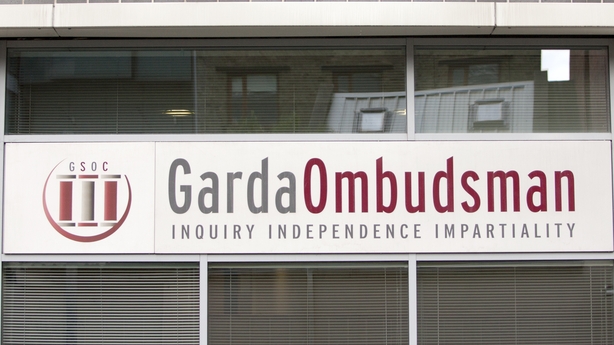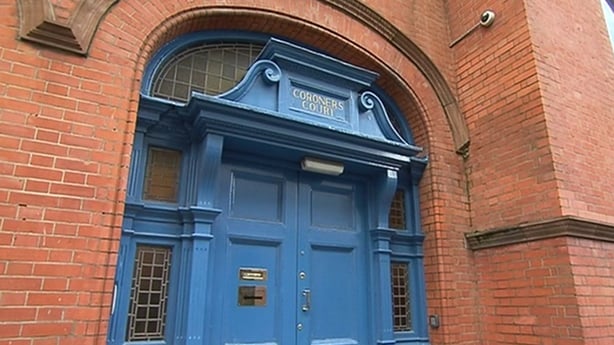The daughter of a woman killed in a road crash in Dublin five years ago has said she “will grieve at every stage” of her life.
Annemarie Hooper, 33, of Beverly Lawns, Knocklyon in Dublin but originally from Fettercairn, Tallaght was a passenger in a car that crashed on Butterfield Avenue, Rathfarnham at 1.30am on 17 December 2019.
Dean Coleman, 25, of Maple Road, Connell Drive, Newbridge, Co Kildare, was the driver of the car which struck a lamppost at a speed of 113km/h after losing control on a bend in a vehicle which he did not own.
Speaking following an inquest into their deaths, Ms Hooper’s daughter Katelyn described the impact of her mother’s death and how she had become an orphan at the age of 13, and was emotionally prevented from living a “normal” life.
“I think I will grieve at every stage of my life. My mother has missed so much of my life already – my 18th birthday in January, five Christmases, five birthdays, five years of lost time,” Katelyn said.
She added: “I have lost so many memories with her and have to face this through every milestone of my life. She won’t be here to see me off on my debs next week. I won’t have her to turn to when I need my mother.”
“Life was and is different for me compared to my friends,” she remarked.
She also complained that she had been unable to access any clothes or documents that were in her mother’s rented property since the fatal crash.
“The effects of this incident will live with me for the rest of my life. It is impossible to put into words the damage my mother’s death has caused me,” she concluded.
The inquest heard Mr Coleman was a banned motorist and was killed along with Ms Hooper while fleeing gardaí.
He had almost twice the legal level of alcohol and traces of cocaine in his body.
Mr Coleman, who was originally from Drimnagh in Dublin, had to be formally identified through fingerprint evidence.
A sitting of Dublin District Coroner’s Court heard Ms Hooper’s body was ejected from the vehicle by the force of the impact.
CCTV footage from a nearby residence, which captured the moment of the fatal crash, was shown at the inquest which was attended by relatives of both victims.
A forensic collision investigator, Garda Lyn Connaughton, said neither of the deceased were wearing a seat belt, while the vehicle’s front two tyres were also defective.
She believed the Fiat Stilo was on the wrong side of the road as it lost control on a bend before being wrapped around the lamppost by the impact.
Gda Connaughton attributed the cause of the crash solely to speed.
The inquest heard that a garda vehicle was following in pursuit approximately 150m behind at the point of the collision.
Coroner Clare Keane said she would not read out evidence from emergency crews who attended the scene because the content was too distressing.
State pathologist Heidi Okkers said post-mortem examinations had shown that both victims had suffered multiple traumatic injuries with numerous fractures of the skull, body and limbs that were consistent with unrestrained occupants involved in a vehicle collision.

Dr Okkers said alcohol, cocaine and benzodiazepines were found in Ms Hooper’s blood, while alcohol and cocaine were found in Mr Coleman’s body.
She noted the combination of both substances could make the driver of a vehicle take “more risk”.
Detective Garda Patrick Browne gave evidence of being the observer in an unmarked garda car parked at the Old Bawn shopping centre in Tallaght at around 1.25am when he heard the screeching of tyres from a vehicle which had come from the direction of Kiltipper Road.
Gda Browne said the car was “travelling in an erratic manner at speed”.
He described how the garda car pulled in behind the suspect car which had stopped at traffic lights and activated its blue lights to signal the driver to stop.
Gda Browne outlined how the Fiat Stilo edged slowly ahead as he was about to open his door to get out to talk to the driver before it took evasive action and then took off at speed.
The inquest heard gardaí followed in pursuit over several kilometres with the fleeing vehicle breaking traffic lights at several junctions.
Garda Browne said the whole pursuit of the vehicle until the point it crashed lasted about four minutes.
The driver of the unmarked patrol car, Detective Garda David Sheehan, said he had only partial sightings of the vehicle during the pursuit.
He said the driver of the Fiat Stilo seemed to have control of the vehicle and had maintained a good road position.
Det Garda Sheehan said he was not driving particularly fast as he was coming to junctions all the time and he estimated his maximum speed at any stage was 100-110km/h.
“We never got close to the vehicle at any stage,” he added.

Gardaí in another patrol car alerted to the scene met the escaping vehicle coming towards them and did a U-turn but waited for their colleagues in the unmarked car to pass and lead the pursuit as they had a more powerful car.
The inquest heard an investigation by the Garda Síochána Ombudsman Commission had resulted in no disciplinary action being taken against any garda.
Cross-examined by counsel for Ms Hooper’s family, Lauren Flanagan BL, Det Garda Sheehan said he was aware of a 2019 garda directive on the managed containment and stopping of vehicles but had received no formal training on the policy.
Asked by counsel for GSOC, Diana Stuart BL, if he was aware that there was a recommendation that gardaí should seek authorisation to continue to pursue a vehicle from a controller, Det Garda Sheehan replied that permission was implied on the night.
“At no stage were we told to stand down or stop,” he observed.
GSOC investigator Shane White said GSOC had issued a systemic recommendation as a result of the incident and two other similar fatal collisions that An Garda Síochána should introduce a decision-making model for the pursuit of vehicles.
Mr White said there was a need for gardaí to make decisions that were “lawful, justified and necessary” and proportionate to the perceived risk with the least intrusive intervention.
He told the inquest that GSOC had received no notification that the recommendation had been implemented.
Counsel for An Garda Síochána Joseph O’Sullivan BL said the 2019 directive was currently under review and had resulted in three new policies which were “at an advanced stage”.
However, Mr O’Sullivan said there was no evidence to suggest that the outcome on the night of the collision would have been any different “with a different approach”.
A jury of six men and four women returned a verdict of death by misadventure in relation to both victims.
The coroner said she would not formally accept the jury’s recommendation that gardaí should be provided with refresher training on managed containment policy.
Dr Keane explained that there was no evidence there was any issue with such a policy involving the two deaths.
However, the coroner did state she would notify the relevant authorities informally.
Offering her condolences to relatives of the deceased, Dr Keane said she was sorry for the harrowing evidence and for any distress it had caused.
Although the details were not provided at the inquest, Mr Coleman had been serving an eight-year driving ban imposed in 2013 at the time of the fatal crash.
He had also previously been given a four-year prison sentence for dangerous driving for his role in a high-speed chase with gardaí around Dublin in December 2013 which ended when the vehicle, in which his one-year-old son was a passenger, crashed into several parked cars before hitting a lamppost and a wall.
He was found hiding behind a bin and subsequently tested positive for cannabis.
Mr Coleman had 27 previous convictions at the time, including five for dangerous driving.
Ms Hooper had been predeceased by her baby daughter Sofiah and her former partner.
The families of both victims hugged each other at the end of the inquest.
